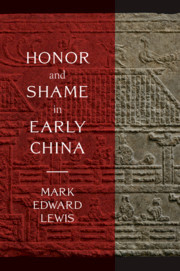Description
Honor and Shame in Early China
Author: Lewis Mark Edward
Lewis sheds new light on the early Chinese empires through an ambitious examination of evolving ideas about honor and shame.
Language: English
Subject for Honor and Shame in Early China:
Publication date: 12-2020
264 p. · 15.7x23.5 cm · Hardback
264 p. · 15.7x23.5 cm · Hardback
Description
/li>Contents
/li>Biography
/li>
In this major new study, Mark Edward Lewis traces how the changing language of honor and shame helped to articulate and justify transformations in Chinese society between the Warring States and the end of the Han dynasty. Through careful examination of a wide variety of texts, he demonstrates how honor-shame discourse justified the actions of diverse and potentially rival groups. Over centuries, the formally recognized political order came to be intertwined with groups articulating alternative models of honor. These groups both participated in the existing order and, through their own visions of what was truly honourable, paved the way for subsequent political structures. Filling a major lacuna in the study of early China, Lewis presents ways in which the early Chinese empires can be fruitfully considered in comparative context and develops a more systematic understanding of the fundamental role of honor/shame in shaping states and societies.
Introduction; 1. Honor and shame of the king and the warrior; 2. Acquired honor in the warring states; 3. State-based honor in the warring states; 4. Honor of the imperial officials; 5. Honor in local society in the early empires; 6. Honor and shame of writers and partisans; Conclusion.
Mark Edward Lewis is Kwoh-ting Li Professor of Chinese Culture at Stanford University.
© 2024 LAVOISIER S.A.S.

